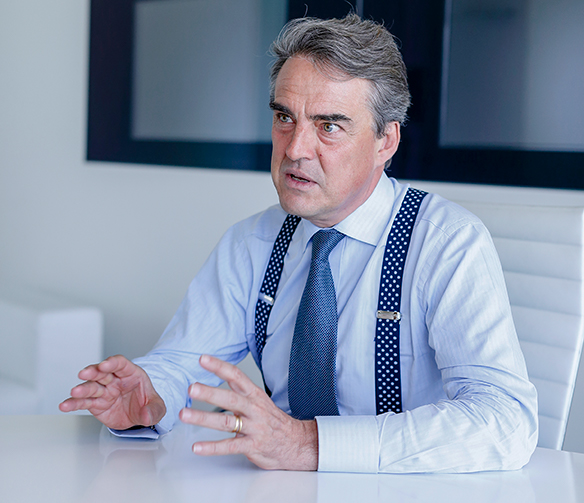
IATA searching for airport capacity solution
For the past four decades, the Worldwide Slot Guidelines (WSG) system has been used to allocate capacity at airports that are at or near capacity. Each year, some 1.5 billion passengers fly from 195 slot coordinated airports and, while the guidelines are “great” at managing scarce capacity, they are not an alternative for building more airports, according to IATA director general Alexandre de Juniac.
In the meantime, during a chief executives roundtable discussion at the association’s 74th annual meeting in Sydney, Air Canada boss Calin Rovinescu defended the system, stating that airlines need adequate capability for entry and the system has created an “enormously competitive industry.”
He declared, “The model is not broken. Independent slot coordination with the participation of airlines and governments proves it’s not a broken system.”
But Emirates chief Executive Tim Clark asked, “What are we going to do when there are not enough slots? There’s no immediate solution, and it will be acrimonious when slots reach their finite point.”
And Rovinescu responded, “That’s a lack of infrastructure development issue, not a slot allocation system issue.”
In his report on the industry, de Juniac stated bluntly, “We are in a capacity crisis, and we don’t see the required airport investment to solve it. Governments struggle to build quickly, but with cash-strapped finances, many are looking to the private sector for solutions.”
He told member airlines, “Our message: We need more airport capacity, but be cautious because expecting privatization to be the magic solution is a wrong assumption.”
Even airlines themselves had high hopes that private sector investment and business acumen would bring benefits, and there were some quick wins said de Juniac, but he added, “They were outnumbered by disappointments, and airlines have had far too many bitter experiences.”
However, following his presentation, the DG told a press briefing that at least Canada had come up with a positive development, “putting privatization plans on the back burner, as a result of IATA’s advocacy efforts.”
Motivated by members’ frustration, IATA commissioned a performance benchmarking study which concluded that privatized airports “are definitely more expensive, but there is little difference in efficiency or investment levels compared with airports in public hands,” de Juniac revealed.
He told a record number of more than 1,100 AGM delegates, “This runs counter to the results of airline privatization where intense competition led to lower costs, and it’s a third cheaper to travel today than it was in 2000.”
The former Air France CEO stated, “Airlines do not accept that privatizing airports must lead to higher costs and neither should consumers or voters.”
“How can making the transport infrastructure more expensive – which means less competitive – be a legitimate public policy objective,” he demanded.
According to de Juniac, the study did not reveal a one-size-fits-all solution, but “it was clear that, when the government maintains its skin in the game, it generally provides a better outcome for consumers and the wider economy.”
And he shared three conclusions that emanated from the study:
- First – Never sell the crown jewels just to raise cash.
- Second – Airports focus on what is important when performance improvement goals are set in consultation with airlines.
- Third – Airports have strong, monopolistic market power that can only be curbed with firm regulation.
In conclusion, de Juniac told member carriers, “The decisions taken, and those not taken on the development of infrastructure in the coming years, will have a profound impact on local and national economies, as well as the experience of our customers. Our united voice on this issue will help governments make the right choices.”

